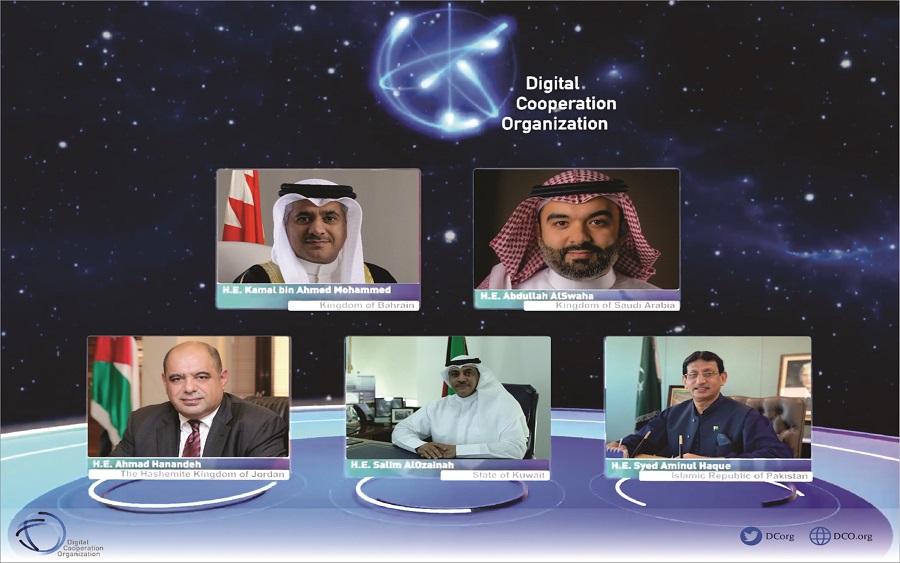The Digital Cooperation Organization (DCO), a digital union made up of Middle Eastern countries interested in collaborating to realize their collective digital potential, welcomed Nigeria ‘quietly’ in April, which caused a bit of uproar on the internet and whispers over the purpose of Nigeria’s participation in the Union, as the only sub-Saharan African nation.
Earlier this Month, the DCO revealed in a Twitter statement that Ministers and representatives met to discuss the aims and ambitions of DCO member states and non-member partners and to lay the foundations for effective collaboration. Nigeria joined the Kingdom of Bahrain, the Hashemite Kingdom of Jordan, the State of Kuwait, the Sultanate of Oman, the Islamic Republic of Pakistan, and the Kingdom of Saudi Arabia in the union which aims to “advance digital transformations inclusively and in a multi-stakeholder approach.”
“We welcome new members even beyond governments – including private sector entities, research and academic institutions, international organizations, civil society groups, and other institutions,” the group says.
The DCO also says its foundations includes three bodies: ”The Council of the organization, a General Secretariat, and temporary Committees that are established on an as-needed basis to engage in the realization of our collaboration agenda.”
The Riyadh based organization revealed that the benefits of membership allow the group to develop “policies and regulations, engage in joint, projects and capacity building, and share knowledge among one another to advance our progress collectively.”
What can Nigeria gain from the DCO?
Two members of the DCO, Pakistan and Saudi Arabia, are well-experienced members working with the United States in the war against terrorism, which has also gone digital, with terrorists funding their operations, buying weapons, spreading propaganda and drawing new recruits through digital means. Nigeria has reiterated its intentions to take the fight against insecurity serious in this regard.
Recent media reports revealed that the Federal Government increased the capacity of intelligence services to tackle cybercrime and counter-terrorism, citing that the National Assembly recently approved budgets for the upgrade and provisions of spy facilities at the National Intelligence Agency (NIA) and Defence Intelligence Agency (DIA) for monitoring and intercepting calls and messages on mobile devices.
Confidence MacHarry, security analyst at geopolitical research firm, SBM Intel, says a cyber-cooperation with Middle Eastern states would help Nigeria through intelligence sharing to combat terrorism if there is a genuine interest to help Nigeria.
“The only way it could be of help is if those nations genuinely want to combat terrorism, which I doubt they want to do. If they really want to do that, then it means intelligence sharing, especially around financial support to terror groups. Recall What Dubai did with the list of Boko Haram funders?” he stated.
When asked if Nigeria’s secular structure poses a potential problem to its membership of the group, McHarry had this to say:
“It is problematic since the premise of their gathering and connecting lines seems to be Islam and not necessarily technologically corporation. Quite troubling that a nation like Nigeria is a part of it, further fueling talks that the president and his team want to Islamize the country.”
Speaking on the progress made so far in the fight against terrorism, McHarry stated that the government is doing a lot to track citizens and is also buying gadgets for surveillance, bugging phones, etc.
“The saving grace for most Nigerians is that the government does not have the capacity to enforce a police state like China, and has narrowed its focus on the media and some members of the opposition,” he said, adding that “This is the bane of the fight against insecurity–the inability to effectively use cyberspace to curb it, as well as the lack of political will to use every available element of the state to address the problem.”
Bottomline
Like everything government-related, the will to engage is the best way to tackle a problem. Joining such an organization is not enough as Nigeria needs to be pragmatic in establishing cybersecurity collaborations in the fight against insecurity.
Also, Nigerians need to be aware and protect their privacy as the government may overstep boundaries with new surveillance gear which may be used on “political enemies” rather than external enemies to the state with the capacity for violence.







